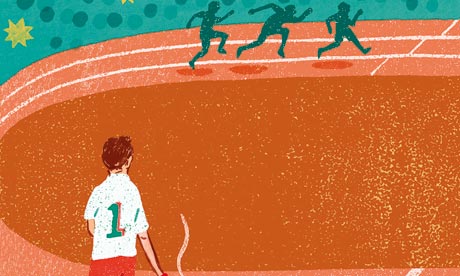
When, if ever, is it best to "settle" – to opt for a relationship, or a career, or anything else that's less than you'd hoped for? The standard advice from dating experts is that you should never settle ("living with integrity [means] not settling for less than you know you deserve," writes one such pontificator, Barbara DeAngelis) except, you know, sometimes ("it sure ain't romantic, but it is practical," says another, Evan Katz). So you'll have to settle for being confused, at least if you listen to dating experts. Or you could listen to Robert Goodin. Goodin is a philosopher, not a dating expert. His previous publications have titles such as Rationalising Discursive Anomalies, which won't get him invited on to ITV's This Morning in a hurry, but he has just published a book on settling. It's called (wait for it) On Settling, and it may be of more use than most self-help works on the topic combined.
The pro-settling case was put in Lori Gottlieb's 2010 book Mr Good Enough. "Don't worry about passion or intense connection," she argues. "Don't nix a guy based on his annoying habit of yelling 'Bravo!' in movie theatres. Overlook his halitosis… " Keep hunting for perfection and you'll be doubly penalised. You won't enjoy the quest, and probably won't find a better husband (or whatever) anyway. But "good enough" compared to what? The overconfident dater will still tell herself she's an exception; the underconfident one risks choosing someone not only imperfect but terrible. "Good enough" is as slippery a notion as "perfect".
Goodin, by contrast, gets down to fundamentals. He defines "settling" in any area of life as the decision to give up seeking the optimal outcome in that area, at least for now. But this isn't just sometimes wise, he argues: rather, it's intrinsic to any kind of meaningful existence. Why? Because virtually all human activity requires some stability, some fixed points, some closed-off options. Sign a job contract, and you're committing to showing up on Monday morning, instead of jetting off abroad in search of better opportunities. Get married, and you're agreeing to stop auditioning other candidates. (The same applies to renting a flat, choosing a bank.) Trust depends on predictable behaviour, and society – from government to marriage to commerce – depends on trust. Even the opposite of settling, striving, depends on settling. Decide to become, say, a world-famous architect, and you must commit to architecture, thereby closing off the option of exploring alternative paths to fulfilment.
This, you might object, is typical philosophical hairsplitting, avoiding the main issue: should you marry Halitosis Guy, or not? But Goodin's argument is liberating. We imagine we have to decide between a life of settling, or one of striving. In fact, he points out, we must settle, in order to do anything worthwhile. Periodically, he suggests, review your balance of settling versus striving, to see if it's time for a change, and new year is as good a time as any to take stock. But stop worrying about whether to settle: you are settling. Mercifully, you don't have a choice.
• The Antidote: Happiness For People Who Can't Stand Positive Thinking, by Oliver Burkeman, is published in paperback by Canongate Books at £8.99.
oliver.burkeman@theguardian.com
Follow Oliver Burkeman on Twitter

